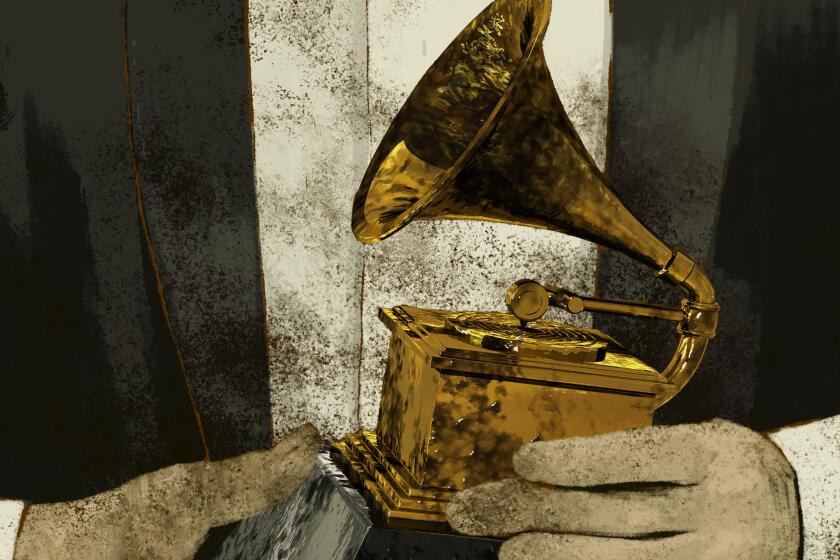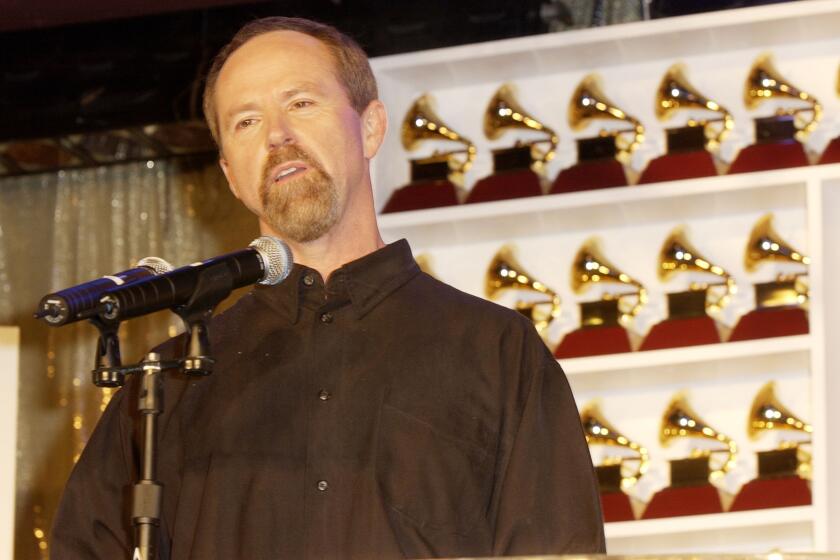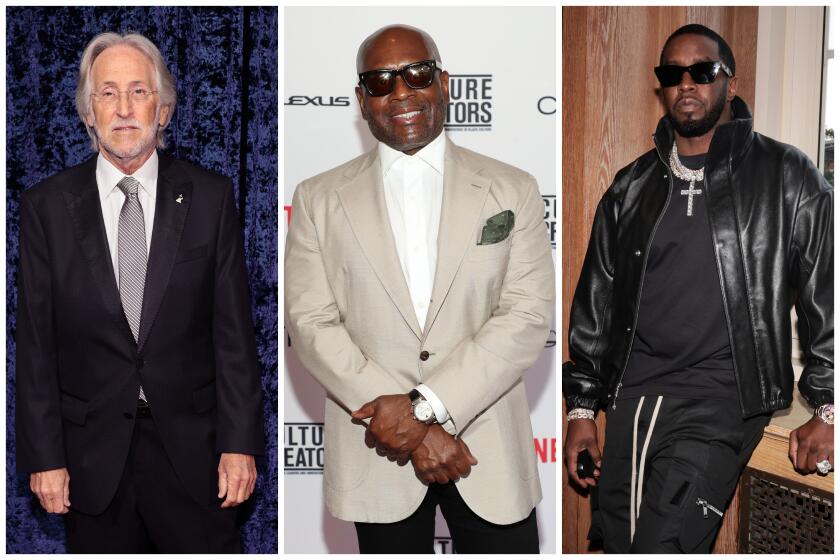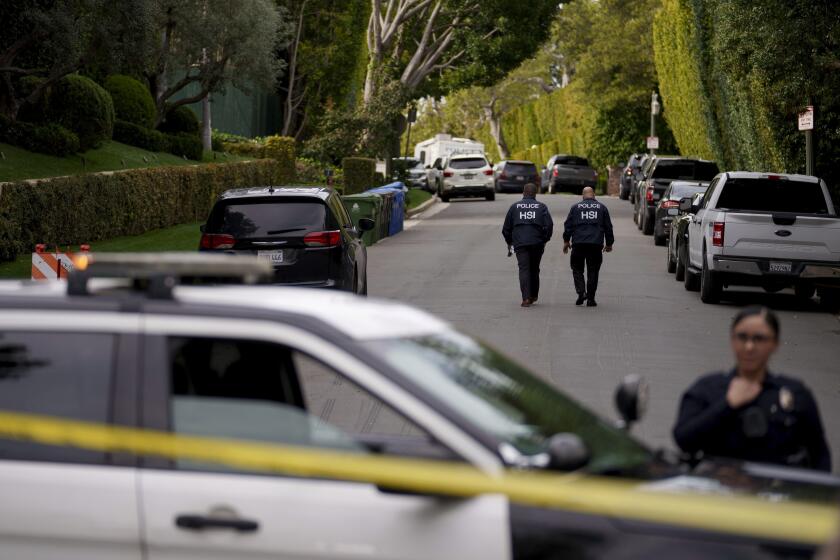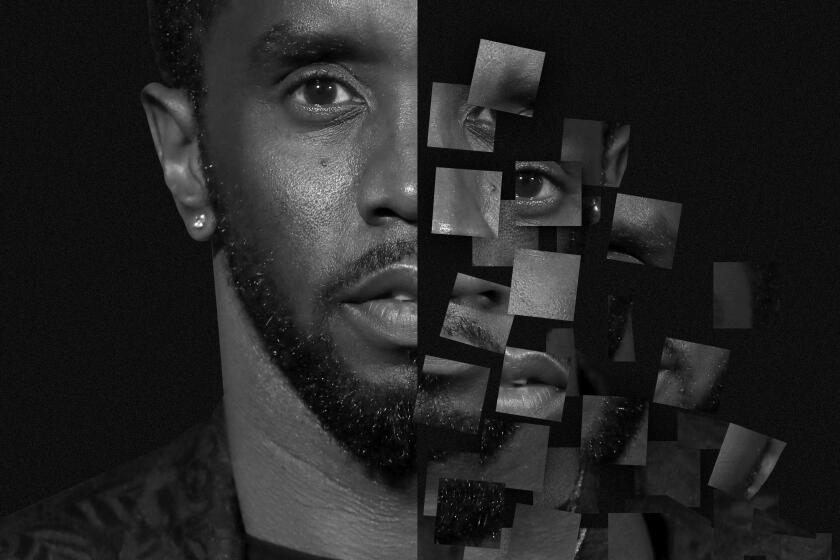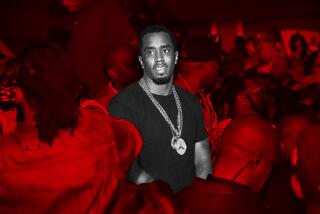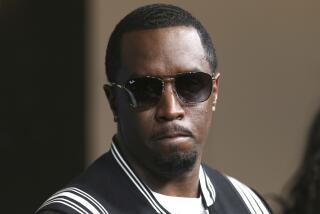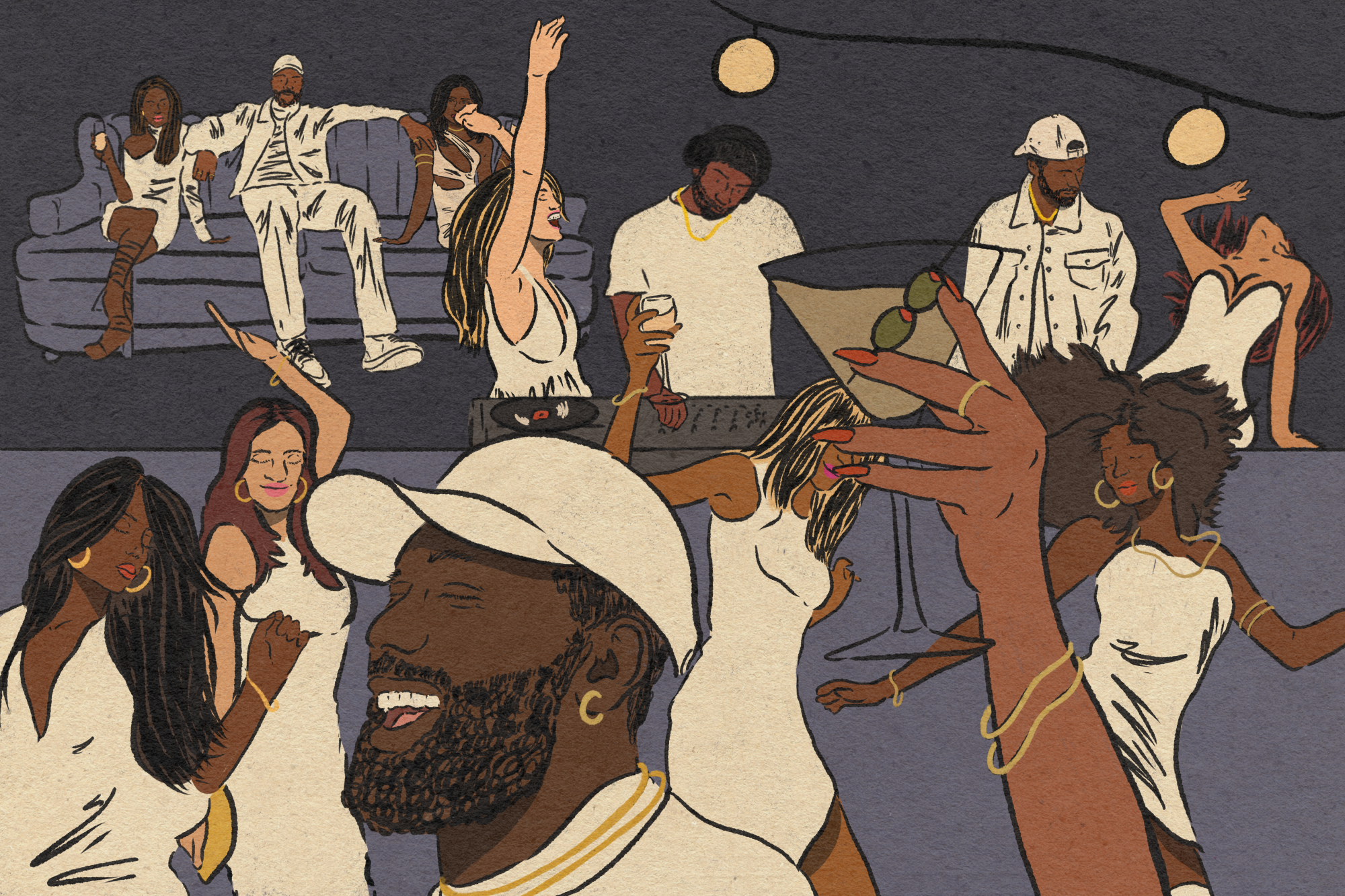
The sex-trafficking investigation involving Sean ‘Diddy’ Combs may be today’s headlines, but misogyny in hip-hop is old news — a reality I know all too well.
I knew little about the music industry before becoming editor in chief of Honey, a young magazine for urban women, right after the somewhat anticlimactic shift from the 20th to the 21st century. Within a week of offering me the job, my new boss invited me to Sean “Diddy” Combs’ notorious White Party in the Hamptons.
It seemed as if every major urban entertainment heavy hitter were milling around the conspicuously luxurious modern house and vast grounds. These were the elite who decided what sound was hot and which artist would get radio play, which designers were in and what style was next, what were the coolest restaurants, nightclubs, luxury cars, vacation destinations and liquor brands.
It was immediately and abundantly clear that hip-hop was primarily a male preserve in which men discussed how they were going to handle other men they considered allies or adversaries — and what they were going to do to women they considered props or property.
It was nearly impossible to tell which fabulous woman was a model and which was an executive.
The hierarchy was a clearly defined caste system, with the most powerful male ballers surrounded by a crew of slightly less formidable guys who were rewarded for their hype-men-like loyalty with riches and access. Save for a very few female music, style or media executives, the party was largely populated by naive women not more than a decade out of puberty, whose goal seemed to be to get as close as they could to the primary baller.
I’d never been around a crowd so universally beautiful and dressed to the nines; it was nearly impossible to tell which fabulous woman was a model and which was an executive. Though my boss introduced me as the new editor in chief of Honey, almost every man I spoke with openly ogled me, asked if I ever thought about modeling, or offered to put me in their next video. I was grateful when rain cut the party short.
The Recording Academy, which presents the Grammy Awards, is facing renewed questions surrounding its handling of claims of misconduct by former executives.
My eagerness to leave was tempered by the fact that my boss had too many martinis to drive. While I was able to navigate his sports car back to the city, it was obvious that I didn’t yet possess the skills to navigate the complex power dynamics of hip-hop culture. So, my boss introduced me to the late Andre Harrell, founder of Uptown Records and the kingmaker who gave Diddy his first break, to help me learn how to survive in an industry that both welcomed and disrespected me.
Andre was immediately generous with his time and insight. The ultimate music industry insider, Andre was a marketer at heart. So when he said, “Look, Amy, you are a brand that hasn’t been built yet. Everything you do in the next six months will determine what that brand is and how people in the industry will treat you,” I believed him. He also told me the industry was filled with “men who never had anything, so the minute that they have a taste of something, they want everything. And they talk. Everyone will be watching you to see what choice you make, so make good choices while you can.”
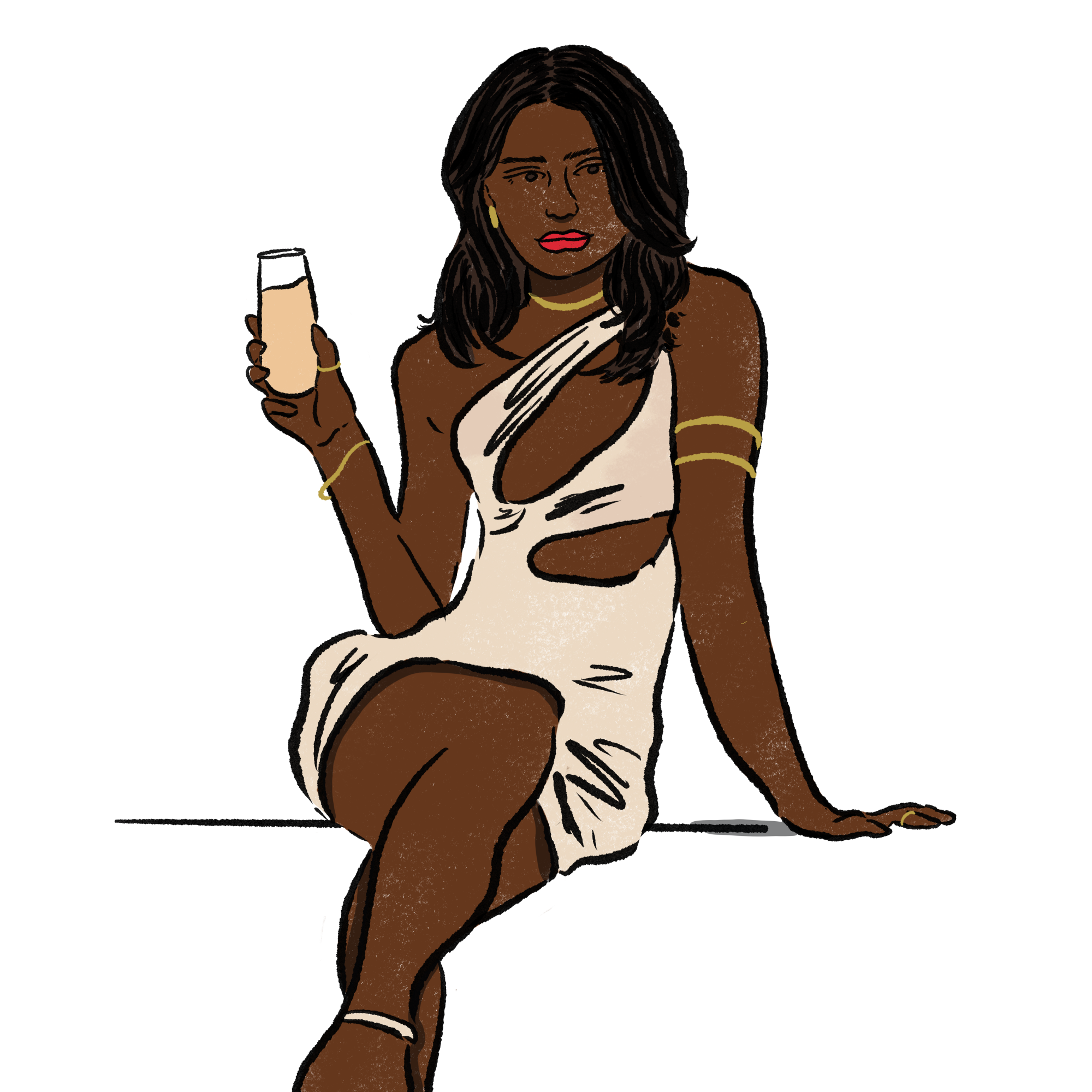
Andre’s wise words stuck with me as I puzzled how to command respect within a culture that valued physical attractiveness and style over my master’s degree and my position running a key source of relevant journalism for a critical demographic. I understood what Andre meant, that much of the male bravado in hip-hop masked anger, frustration and corresponding deep insecurity that stemmed from poverty, trauma and emotional voids. And that the misogyny within hip-hop culture ran as deep among the mostly male execs as it did the music itself.
After its explosive growth from a regional subculture to a multimillion-dollar international industry, hip-hop was at a zenith. Hip-hop and mainstream culture were indistinguishable; models were walking high fashion runways in dookie chains and durags, and hip-hop music executives and artists ran a key part of New York’s social scene. I’d watched hip-hop’s decisive takeover in the 1980s from the front stoop of my family home in Harlem. Kurtis Blow, Run DMC, LL Cool J, Queen Latifah and Will Smith were releasing party songs that still get people to the dance floor. Though the music began to change in the late ’80s, the predominant vibe into the early ’90s was still funky, fresh fun.
But the increasing violence of inner cities altered by drug use and poverty spawned the rise of gangsta rap, which would end up dominating the genre by the mid-’90s. At first, music labels wouldn’t even sign music with misogynistic overtones. But as gangsta rap’s glorified depictions of violence gained acceptance within lyrics and urban iconography, so did sexually explicit themes that, ultimately, expanded into widespread misogyny. Women were derided with vulgar nicknames and viewed as whores deserving of violence.
Sociologist Ronald Weitzer and criminologist Charis E. Kubrin, both of George Washington University at the time, wrote a 2009 journal article titled “Misogyny in Rap Music” that described five main misogynistic themes: derogatory naming and shaming of women, sexual objectification of women, distrust of women, legitimating violence against women and celebration of prostitution and pimping.
Terri McIntyre, a former executive director of the Recording Academy’s Los Angeles chapter, alleges sexual assault and battery, negligence and harassment, and cover-ups.
When music labels saw the traction that violent and misogynistic music was getting, they shifted their approach to distributing gangsta rap records (while still not signing the artists). When music chronicling murderous street life and sexist violence began to get radio play, the labels gave in and started signing gangsta rap artists. Interscope’s groundbreaking partnership with Dr. Dre, Suge Knight and Death Row Records opened the floodgates and led to the proliferation of “controversial” hip-hop.
The culture surrounding the music shifted too, emboldening artists and executives to unabashedly play out the misogynistic musical themes in real life; it became aspirational for men to be violent toward women. Because, at its peak, hip-hop culture was synonymous with mainstream culture, the impact of this was felt not just in music but also in fashion, sports, film and all entertainment forms. It became acceptable for a platinum rapper to grab my ass in a club, for a well-known label executive to lock the doors of a limo and refuse to let me out until I kissed him, for my Motorola pager to be filled with lewd propositions from entertainment and sports power brokers, or for men to casually call me a “bitch” or “ho” when turned down. I heeded Andre’s advice while watching women without benefit of his sagacity make one too many missteps with the wrong baller and get treated much, much worse.
I tried to create a personal brand that limited harassment but learned that my success depended on music industry ballers finding me attractive.
The world I entered when I became editor in chief of Honey was a heady mix of intoxicating and dangerous. Hip-hop music generated money and power — and a social scene filled with bottomless excess and debauchery. The culture demanded that we dress like we were going to a party every single day: low-slung jeans with cropped tops, miniskirts with knee-high boots, catsuits with stilettos. As with Puff’s White Party, you often couldn’t tell the female executives from the video dancers — and in that work hard/play harder environment, we were all hanging out together at the near-nightly parties anyway.
I tried to create a personal brand that limited harassment but learned that my success depended on music industry ballers finding me attractive and being under the illusion that I could be theirs one day. As one female music industry executive who wishes to remain anonymous put it, “Music industry ballers had a God complex. They had to feel like every woman desired them and that they could have any woman they wanted. And they acted like kids in a candy shop, choosing from a selection of women and drugs.”
Alexa Nikolas, founder of activist group Eat Predators, on the ‘miracle’ of Cassie’s lawsuit against Sean ‘Diddy’ Combs and the challenges still facing abuse survivors.
The scene was a minefield that some of us made our way through, deftly balancing strategic sexiness with firm boundaries. But it was littered with cautionary tales of women who got strung out on drugs, who found themselves single moms to multiple kids with various ballers, who were totally burnt out, whose reputations were so damaged that they disappeared into oblivion, or who didn’t make it out at all, perishing by suicide or overdose. The darker hip-hop became, the less safe it was for women, especially for Black women whose image was disproportionately influenced by the degrading and objectifying lyrics.
And we knew it. Women in and around the industry talked about it all the time over brunches and dinners and group phone chats. But none of us shared publicly. The tyranny of fear that makes Black women reluctant to take risks lest we lose the tenuous hold we have on our status affected our willingness to rock the boat in a tiny industry where everyone knows one another.
Maybe we had also been too inculcated with hip-hop’s “no snitching” code, a misbegotten form of self-governance that shielded the community from external punishment within racist systems but enabled all manner of injustices to go unchecked. And then there’s the unspoken cultural oath that Black women have taken to protect Black men. Because Black women have watched how systemic racism in our society has disproportionately turned Black men into targets, we are collectively reluctant to add to the burden they already face just walking down the street. So, we often refuse to hold them accountable for problematic behaviors, even when the behavior is deeply misogynistic, even if it means minimizing the trauma of the survivors, even to save ourselves.
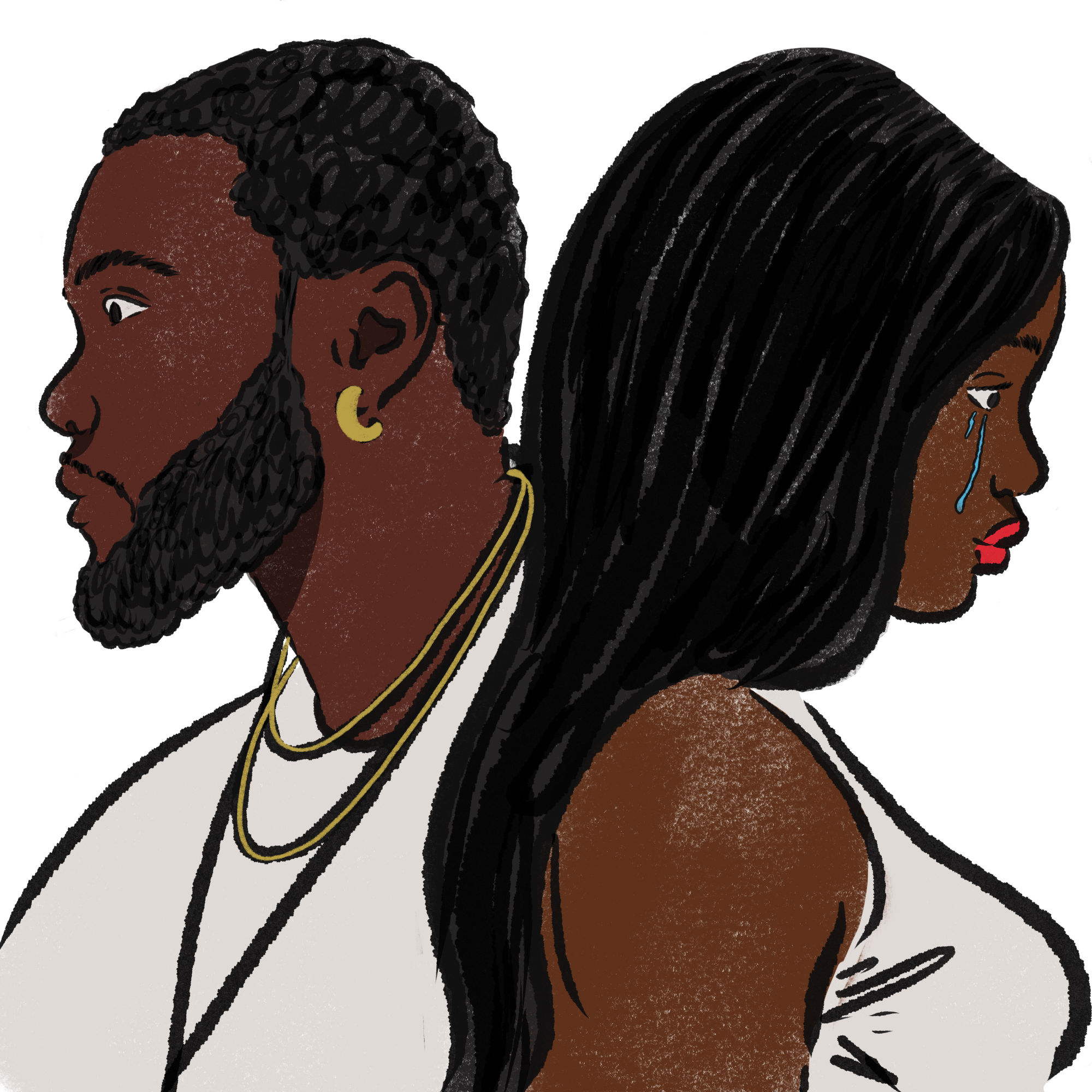
Over a decade later, at the onset of the Me Too movement in Hollywood, group chats of women in music and entertainment media were once again filled with tales of sexual harassment and assault. We shared our stories and rued the persistence of casual degradation and hyper-sexualization. But while the overwhelming majority of us had stories as painful as our Hollywood counterparts who were making their experiences known, we still didn’t come forward.
For a long time, I couldn’t understand why the trauma of women in the music industry was less clear cut. I now realize that the real issue lies in the core difference between Hollywood and music: Hollywood reflects the culture, while music drives it. And since hip-hop has long defined popular culture, you can’t reduce its burgeoning Me Too movement to a few problematic personas within a powerful industry. The rampant misogyny spawning from gangsta rap and equally problematic sub-genres has impacted not just female music employees but generations of people across the U.S. and around the world via the behavior it informs.
Because it was such a ubiquitous part of a culture that we loved, we just accepted our fate — which was why Drew Dixon’s lawsuit against L.A. Reid and Cassie’s recent allegations of sexual harassment and abuse against Diddy were such bombshells. Combs denied the accusations and quickly settled with Cassie, whose lawsuit had accused the music mogul of rape and a “cycle of abuse.” But Combs returned to headlines Monday, when federal authorities raided his properties in L.A. and Miami in connection with a sex-trafficking investigation.
Legal experts say it could take time to build a criminal case against the hip-hop mogul but note that civil lawsuits against him could offer investigators a road map.
That after 30 years, there are so few of us willing to hold our tormentors — or the industry — accountable speaks volumes. Some of us felt complicit in contributing to and financially benefiting from a culture that did not respect us. We felt collective guilt about the gray areas. The culture was predatory around beauty but also around brilliance, so we tried to game the system, using hip-hop’s power dynamics to our advantage. Though still groped and propositioned, successful female power players in the industry were mostly left alone by the biggest male power players. And many who made it out were able to forge successful careers within and outside the music industry. As a female executive who transitioned from music to tech put it, “The skills we developed while navigating the craziness that was hip-hop culture in the early naughts, gave us the fortitude, strategy and discernment to be successful in all aspects of our lives since.”
We’ve barely skimmed the surface of misogyny in hip-hop. This is a reckoning that would have to extend far beyond any one industry; instead, a Me Too movement in hip-hop would require examining a culture that has no doors or borders, one that reaches to every corner of Black and mainstream society.
The ramifications of pervasive casual misogyny in hip-hop will require generations to unravel, and I’m not wholly confident that we’ll ever get it done. I know too many women, myself included, who are still reluctant to tell their stories, who still question whether society is ready to examine a culture that has created this level of international wealth and influence. But greater awareness and corresponding consequences may lead to another shift, where men will be held accountable, and where more women in music feel free to share their experiences and heal from their trauma.
In the wake of multiple lawsuits filed against him, former members of Combs’ inner circle told The Times that his alleged misconduct against women goes back decades.
More to Read
The biggest entertainment stories
Get our big stories about Hollywood, film, television, music, arts, culture and more right in your inbox as soon as they publish.
You may occasionally receive promotional content from the Los Angeles Times.
